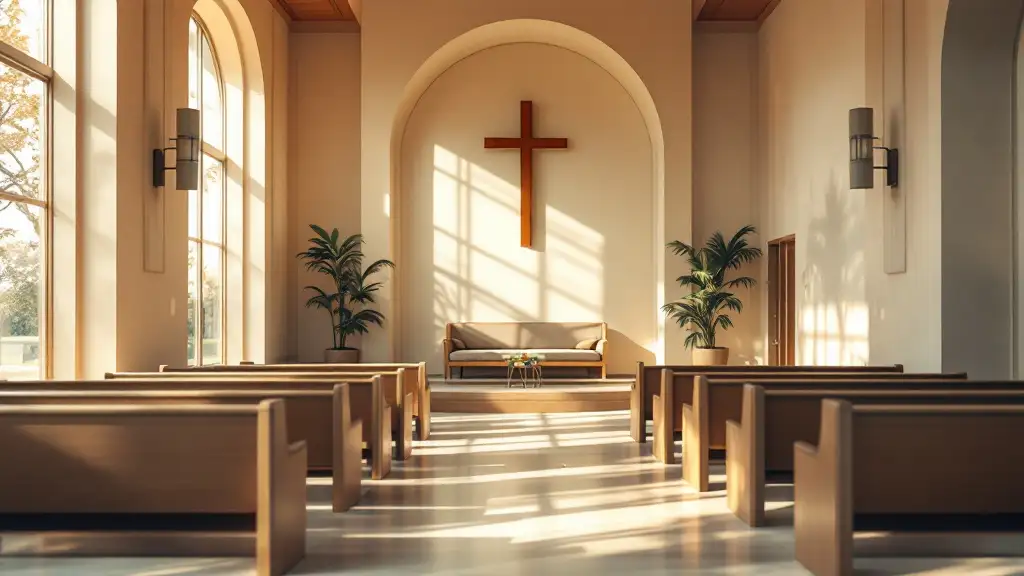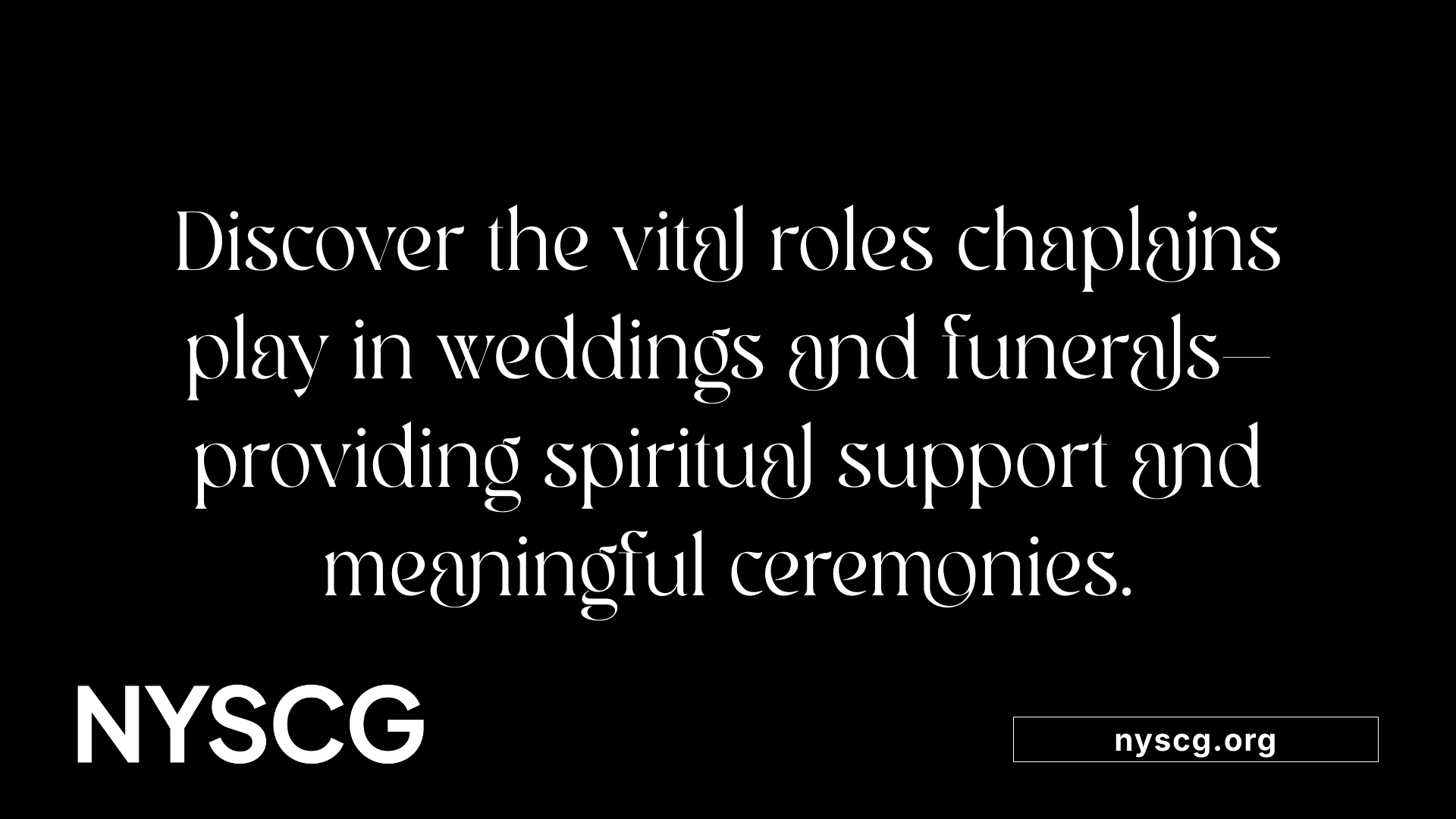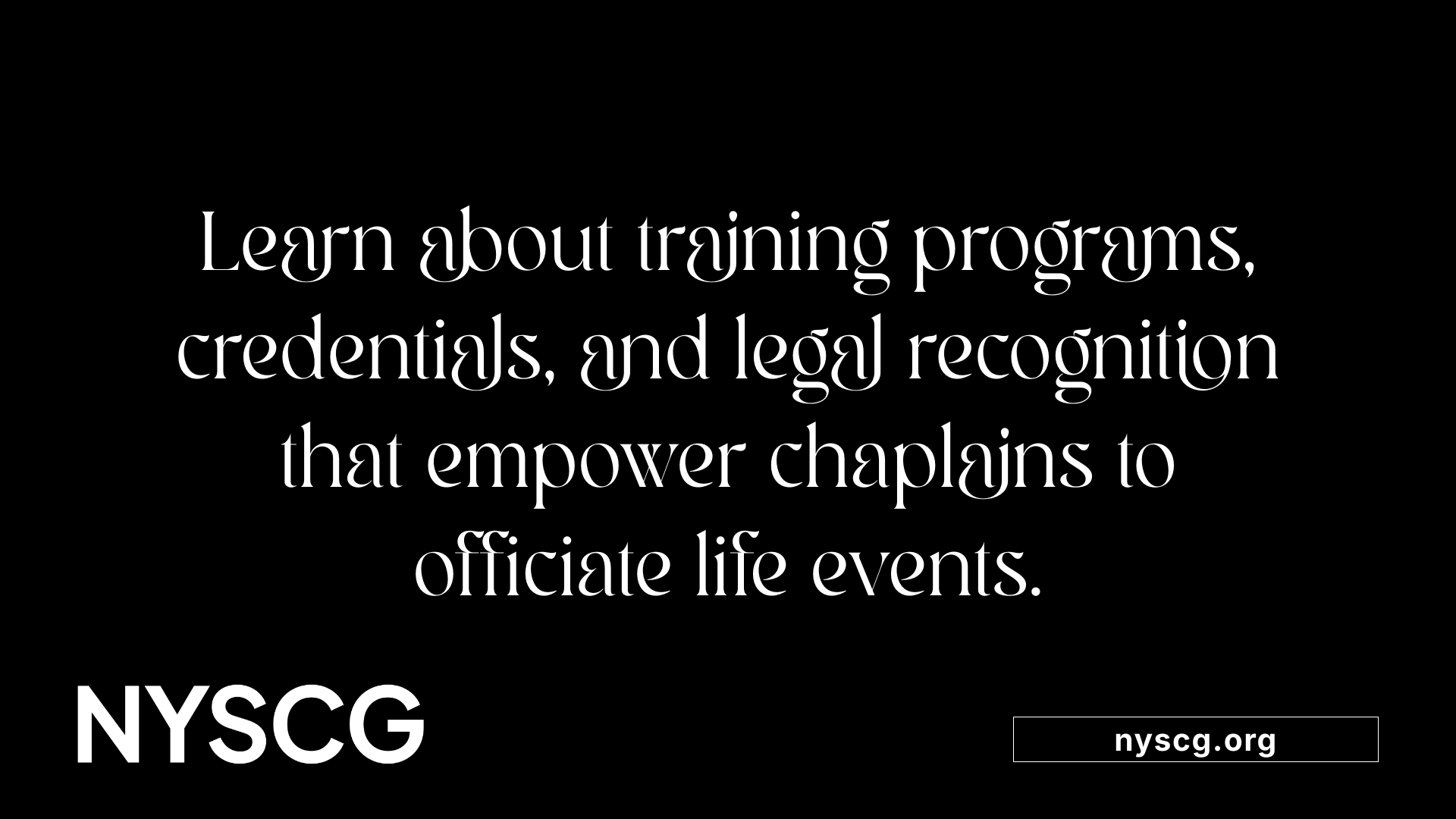Can Chaplains Marry People or Officiate Funerals?


Chaplains serve as spiritual guides and leaders during pivotal moments such as weddings and funerals. Their authority to officiate these ceremonies varies depending on legal, religious, and organizational factors. This article explores whether chaplains can legally marry people and officiate funerals, the scope of their responsibilities, required credentials, and their significance in these life events.

Chaplains can indeed officiate wedding ceremonies, but their legal authority depends on state laws and their professional credentials. In many U.S. states, religious leaders such as ministers, pastors, priests, rabbis, or other ordained or licensed clergy are legally empowered to solemnize marriages. Some states explicitly recognize these roles, allowing clergy members to perform legal wedding ceremonies without additional registration. In other jurisdictions, officials or recognized representatives of religious organizations must register or obtain licenses to officiate weddings.
The specific eligibility of a chaplain to conduct a marriage also hinges on the credentials they hold. Many military and faith-based chaplains are authorized under their religious organization’s endorsement and may be recognized as lawful officiants in certain regions. However, since marriage laws vary widely across states, it’s essential for chaplains and couples to verify local requirements.
The legal right to officiate hinges on adherence to jurisdictional regulations, the type of religious endorsement, and sometimes on the couple’s preference. For example, some states require officiants to submit documentation or register with local authorities before performing weddings. Whether a chaplain's role qualifies as a legal officiant is therefore situational but is generally supported within many legal frameworks, especially if they are properly credentialed and recognized.
Yes, chaplains are qualified to officiate funerals, offering spiritual leadership during highly sensitive moments. Their role as funeral officiants involves guiding families through the mourning process, honoring the individual’s life, and conducting ceremonies with respect and compassion. Many chaplains, particularly those affiliated with training programs like the Christian Leaders Alliance, are equipped and credentialed to lead funeral services.
Their responsibilities include tailoring the service to reflect the beliefs and wishes of the deceased and their family. This may involve reading scriptures, offering prayers, sharing memories, and providing moments of reflection. Chaplains serve diverse faith traditions or secular audiences, demonstrating flexibility and cultural sensitivity.
From a legal perspective, chaplains can officiate funerals in various jurisdictions if they hold the necessary credentials or permissions. They are often recognized as legitimate officiants regardless of the specific religious background, provided they act within local statutory requirements. Their involvement brings comfort and closure through personalized, respectful ceremonies.
The authority of chaplains to perform marriages and funerals varies across states and organizations. Marriage laws differ significantly, with some states requiring official registration or licensing, while others enable clergy included in religious societies to serve as officiants automatically.
Religious organizations, including military branches, churches, and faith-based groups, often establish their own standards and endorsement procedures. Military chaplains, for example, are typically authorized to officiate weddings and funerals within their service, contingent on military regulations and religious endorsements.
Organizations like the Christian Leaders Alliance provide targeted training and credentials, enabling volunteers or part-time ministers to officiate at these events. These programs ensure that officiants are well-versed in legal and biblical aspects, enhancing their capacity to serve.
Marriage laws are also governed by the Full Faith and Credit Clause, ensuring that marriages performed legally in one state are recognized in others. However, the process to officiate a marriage must align with local laws, requiring registration, licensing, or specific documentation.
To summarize, while chaplains and religious officiants generally hold the privilege and skill to lead marriage and funeral ceremonies, the specifics depend heavily on jurisdictional requirements, individual credentials, and organizational policies.
| Aspect | Credential/Legal Status | Typical Requirements | Notes |
|---|---|---|---|
| Performing Marriages | Varies by state; often recognized if ordained or credentialed | Registration, endorsement, or license | Military chaplains usually recognized; some states require registration |
| Officiating Funerals | Usually permitted with credentials | Credentialing or approval, often through religious affiliation | Recognized across all jurisdictions with proper documentation |
| Types of Officiants | Religious leaders, clergy, chaplains, interfaith officials | Endorsement from organization, proper training | No formal licensing required in some cases; credentials preferred |
This flexibility underscores that chaplains play an essential role in providing spiritual services during life's major milestones, with their authority shaped by local laws and religious organization policies.

Chaplains are central figures in wedding and funeral ceremonies, providing more than just officiating; they serve as compassionate leaders who integrate spiritual, emotional, and cultural elements into these milestone events. In weddings, they perform the ceremony, often sharing biblical teachings about marriage, love, and mutual roles, creating a meaningful experience tailored to the couple’s faith and preferences.
For funerals, chaplains conduct services that offer comfort and spiritual support to grieving families. They coordinate rituals, prayer, and scripture readings that honor the faith traditions of the departed and their loved ones. Their presence offers reassurance, helping bereaved individuals find solace and closure.
Beyond officiating, chaplains assist in planning the ceremonies, ensuring the spiritual elements resonate personally with the participants. They may advise on incorporating specific rites, traditions, or customs that reflect cultural backgrounds and religious beliefs, which enhances the significance of each event.
Ultimately, their role is to facilitate ceremonies that are respectful, personalized, and spiritually meaningful, ensuring each person feels supported and uplifted during these important life transitions.

Chaplain training for officiating ceremonies includes specialized courses offered by organizations such as the Christian Leaders Alliance and the Interfaith Clergy program. These programs teach essential skills for officiating weddings and funerals, covering biblical principles, legal procedures, and practical ministry techniques. The Christian Leaders Alliance, for example, provides a comprehensive online training course that prepares individuals to become ordained clergy and officiate these life events.
Training modules generally include instruction on Christian wedding officiant skills, funeral officiant skills, and how to offer spiritual comfort during ceremonies. The courses also cover how to perform legal acts like solemnizing marriages in accordance with state laws. Many programs are free and include steps such as submitting endorsements, updating profiles, and ordering credentials.
These courses aim to equip chaplains with the knowledge to handle various ceremony types across locations such as parks, lakes, homes, churches, chapels, and gardens. They also teach how to adapt to different faith traditions and individual preferences, ensuring respectful and personalized ceremonies.
To officiate weddings and funerals, chaplains typically need specific credentials, licensure, or ordination.
For weddings, this often involves completing training programs, receiving an official endorsement from a recognized faith group, and obtaining credentials such as ordination certifications. Many organizations, including the Christian Leaders Alliance and the Interfaith Officiating Chaplain program, offer credible credentials recognized by many states and institutions.
For funerals, while no formal certification is usually required by law, many chaplains obtain ordination to ensure legal standing. Necessary credentials are often issued after completing designated courses, submitting references or endorsements, and demonstrating competency.
Some states require registration or licensing with local authorities to legally officiate marriages. Many chaplains also become licensed funeral officiants through programs like that of the Christian Leaders Institute, which grants official credentials after course completion.
Legal recognition varies across the United States but generally allows licensed or ordained chaplains to officiate weddings and funerals. While there is no single national certification mandated for funerals, many jurisdictions recognize the authority of religious leaders, including chaplains, based on their endowment, ordination, or registration.
In the case of marriages, most states allow religious officiants to perform legally binding ceremonies if they are registered or have the necessary credentials. Some states, such as Texas and New York, require officiants to register with local authorities before performing a marriage.
For funerals, chaplains often conduct services without legal registration, provided they are recognized by their faith organization. They may also perform civil rites if authorized and when needed, in accordance with state laws.
Overall, the recognition of chaplain services is grounded in their organizational endorsement, compliance with local laws, and adherence to professional standards.
| Aspect | Requirements | Legal Recognition | Additional Details |
|---|---|---|---|
| Wedding Officiant Credentials | Training, Endorsement, Certification | Varies by state, often through registration | Often include ordination, background check |
| Funeral Officiant Credentials | Usually through ordination or certification | Generally recognized, no universal license | Not legally required but recommended |
| Legal Certification Needed | Registration or licensing in some states | Recognized by local government | Procedures depend on jurisdiction |
Understanding these requirements helps chaplains serve their communities effectively and within legal boundaries, ensuring that their officiated ceremonies are valid and respected.
Chaplains play an essential role in marking life's milestones through marriage and funeral ceremonies. Their authority to officiate these rites depends on a combination of legal recognition, organizational endorsement, and training. By providing spiritual support, personalizing ceremonies, and upholding religious and cultural traditions, chaplains serve as compassionate leaders during some of life's most profound moments. Whether through licensed credentials or trusted organizational endorsement, their service enriches the ceremonies that celebrate life and honor those who have passed.
All you need is the will to make the world a better place.
New York State chaplain group inc. is a tax deductible organization with a federal tax Id number 92-383-4921